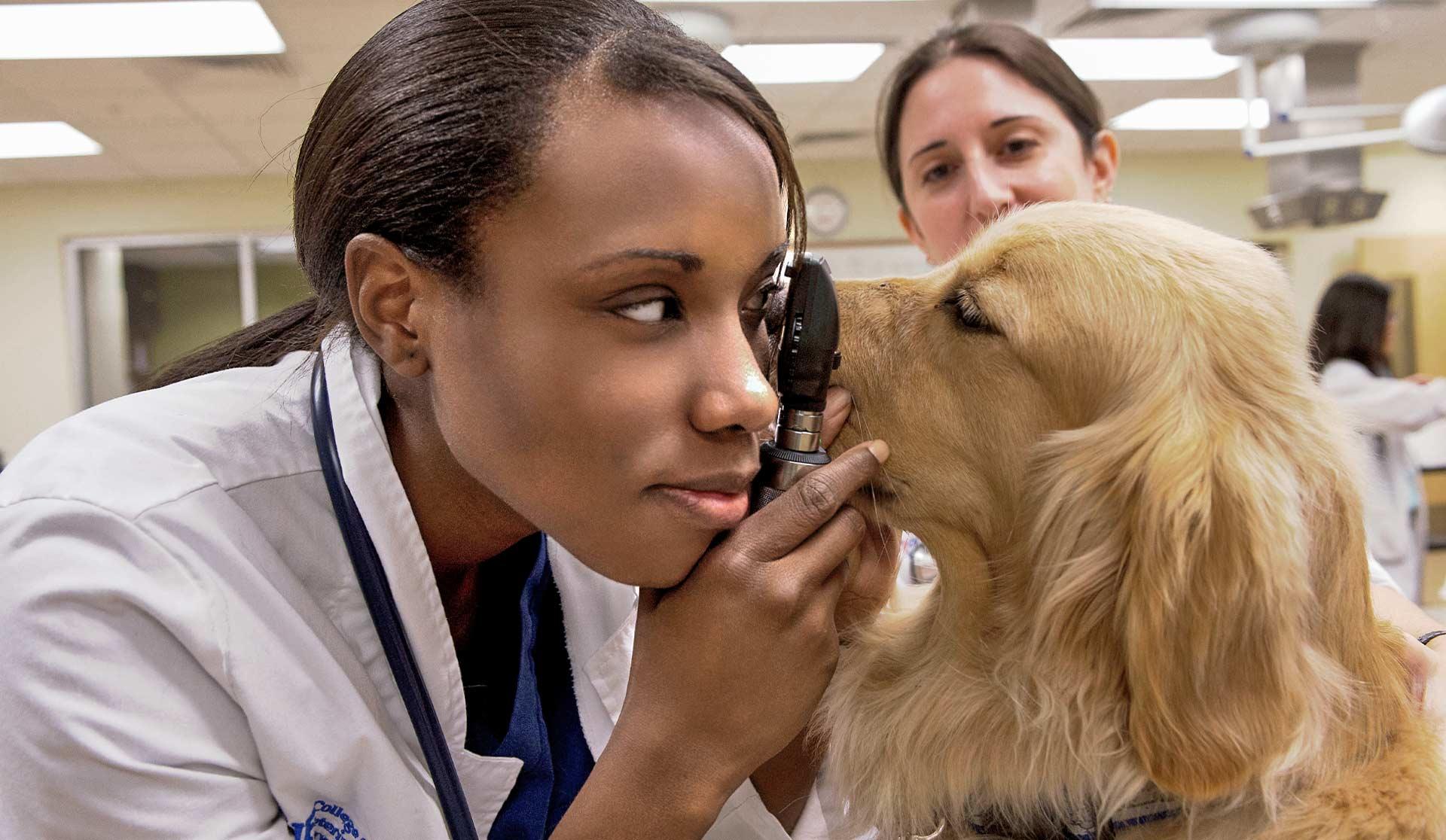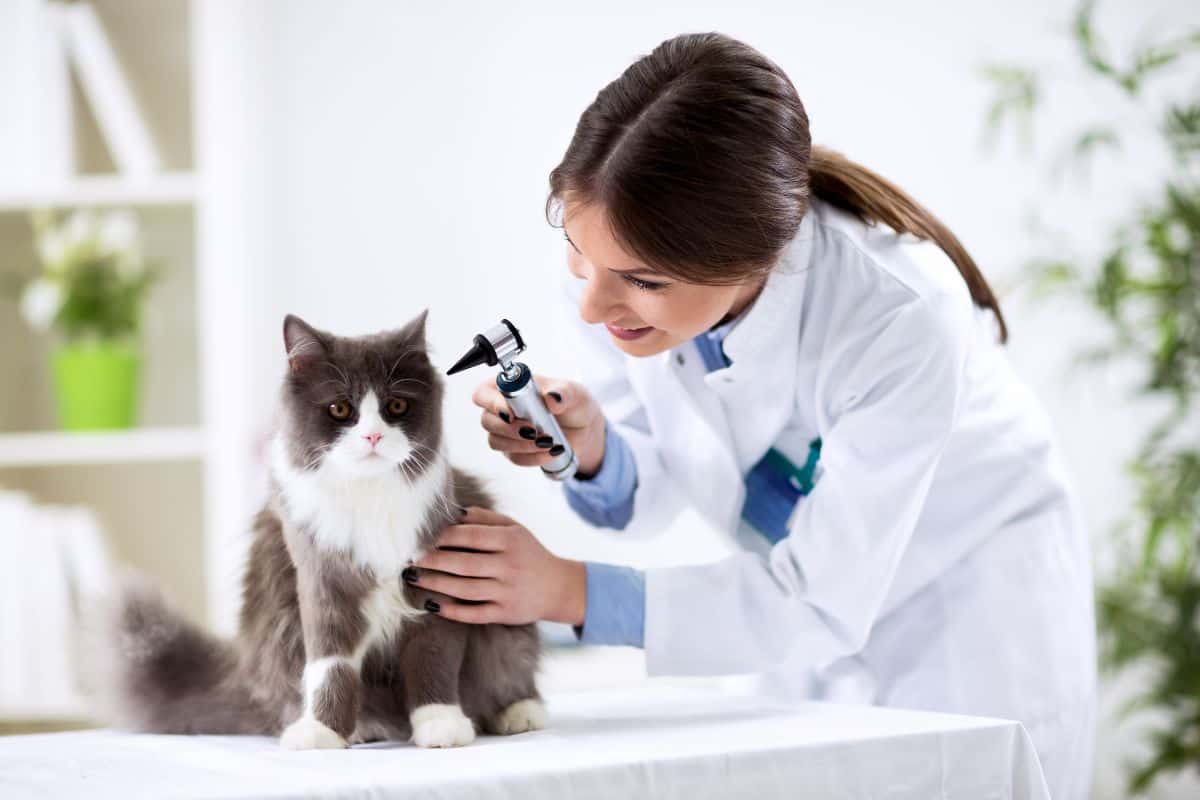When to Look for the Help of an Emergency Vet for Sudden Health Issues
Inoculation Standards From Your Relied On Veterinarian
Inoculation standards offered by your relied on veterinarian play an important role in guarding your pet's health and wellness. Core vaccines are fundamental for all pets, while non-core vaccinations can be tailored to environmental exposures and specific lifestyles. Recognizing the subtleties of inoculation timetables, which begin as early as 6 to eight weeks, is crucial for optimal defense. In addition, attending to usual misunderstandings surrounding vaccinations can additionally boost family pet owners' self-confidence in these safety nets. As we discover these essential facets, it comes to be increasingly clear why routine assessments with your veterinarian are essential for educated decision-making.

Value of Inoculations
Vaccinations play an essential role in protecting pets versus an array of avoidable illness. By stimulating the immune system to recognize and combat certain microorganisms, vaccines substantially lower the incidence of infectious diseases that can impact a pet dog's health and longevity. Not only do vaccinations protect private pets, however they additionally add to herd resistance, therefore reducing the total prevalence of conditions in the pet dog populace.
Timely vaccinations help to alleviate the spread of diseases such as rabies, parvovirus, and distemper, which can have serious consequences for both human beings and pets. In addition, vaccinations are commonly a need for boarding facilities, grooming solutions, and dog parks, making them important for those that desire to mingle their animals.

Core Injections for Pets
While the details inoculation demands of animals can differ based on individual elements, core injections are generally advised to shield against one of the most common and severe conditions (Pet Vaccinations). Core vaccines are those deemed necessary for all pets, regardless of their way of life or geographic location, as they guard versus highly contagious and possibly fatal ailments
For dogs, the core vaccinations consist of those for canine distemper, parvovirus, adenovirus (hepatitis), and rabies. Canine distemper is a viral condition that impacts the respiratory system, stomach, and nerves. Parvovirus is known for causing serious stomach illness, specifically in pups. Adenovirus can lead to liver illness, while rabies is a zoonotic disease that presents a risk to both animals and people.
In pet cats, core vaccinations incorporate feline panleukopenia, feline calicivirus, feline herpesvirus (rhinotracheitis), and rabies. Feline panleukopenia is a highly transmittable viral illness that influences the body immune system and intestinal tracts. Calicivirus and herpesvirus are significant contributors to upper respiratory system infections in pet cats, while rabies stays an essential problem for public wellness.
Seek advice from your vet to guarantee your pets get their core vaccinations on timetable.
Non-Core Vaccines Explained
Non-core vaccinations are customized to deal with particular dangers related to a family pet's exposure, way of living, and atmosphere to particular illness. Unlike core vaccines, which are published here generally recommended for all family pets, non-core injections are taken into consideration based on individual situations. These injections are particularly vital for pet dogs that may encounter special microorganisms as a result of their geographical location, travel habits, or activities.
Examples of non-core vaccines consist of those for Bordetella bronchiseptica, which is linked to kennel cough, and Lyme disease, triggered by ticks. Pet dogs that frequently interact with other pets, such as those in boarding centers, pet parks, or grooming atmospheres, might gain from Bordetella inoculation. In a similar way, if you stay in an area where Lyme disease prevails, vaccinating versus this disease can be a sensible selection for outdoor-loving pet dogs.
Various other non-core injections might include those for leptospirosis, canine influenza, and feline leukemia, depending on the particular threat elements existing. It is necessary to have a complete discussion with your veterinarian about your pet's way of life and the potential requirement for these vaccinations, guaranteeing a tailored vaccination strategy that best safeguards your hairy good friend.
Vaccination Arrange Review

As pets develop, it is very important Going Here to follow the suggested booster inoculations. Vet Enterprise. For adult pets, core vaccinations are generally offered each to three years, relying on the certain vaccination and regional laws. Non-core vaccines might be recommended based upon lifestyle factors and regional illness prevalence, requiring a customized method
Regular veterinary exams are essential for updating inoculation timetables. Your veterinarian can give advice on the most ideal booster shots for your pet, factoring in age, health condition, and ecological threats. By remaining aggressive and informed, pet proprietors can ensure their hairy friends obtain efficient and timely vaccinations, thus protecting their health and wellness and well-being throughout their lives.
Common Misconceptions Concerning Vaccinations
Misunderstandings about pet vaccinations can lead to complication and hesitation amongst pet dog proprietors regarding the immunization procedure. One widespread myth is that vaccines are unneeded for read the full info here interior pets. While it holds true that interior animals encounter reduced risks, they are not entirely unsusceptible to diseases, as pathogens can be presented with numerous ways, including human apparel and other pets.
An additional mistaken belief is that injections can cause the conditions they intend to avoid. Actually, a lot of vaccines have inactivated or attenuated virus, which can not create disease in healthy pets. Some animal proprietors likewise think that their family pets ought to not be immunized if they are currently healthy; nonetheless, vaccinations are an aggressive step that aids protect against the start of ailment.
Furthermore, many family pet owners fear that vaccines will lead to lasting health complications. The advantages of inoculation-- safeguarding pet dogs from potentially dangerous diseases-- far exceed the dangers.
Final Thought
In summary, adherence to inoculation guidelines is critical for making certain the health and wellness and long life of family pets. Dispelling typical myths surrounding vaccinations additionally reinforces the value of informed decision-making in family pet treatment.
Not only do inoculations protect private pets, yet they also add to herd resistance, consequently reducing the general prevalence of illness in the pet dog population.
Misconceptions regarding pet inoculations can lead to complication and reluctance among pet dog owners regarding the immunization process. While it's true that interior pets encounter lower threats, they are not entirely immune to illness, as virus can be introduced via various ways, consisting of human clothing and other animals.
Some family pet proprietors additionally think that their pets ought to not be vaccinated if they are currently healthy and balanced; nonetheless, inoculations are a proactive measure that helps avoid the beginning of health problem.
The benefits of vaccination-- securing pet dogs from possibly deadly illness-- far exceed the dangers.